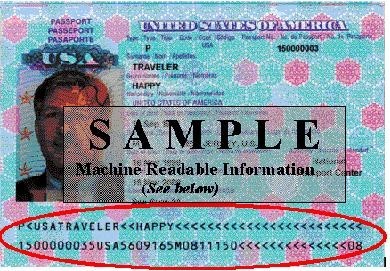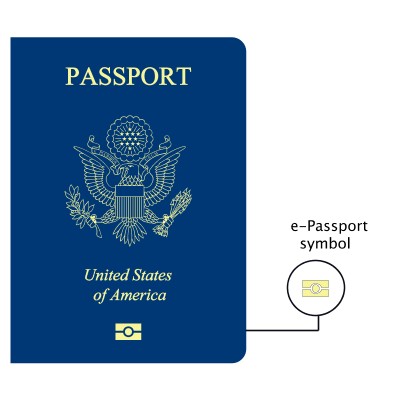Skip to main content
The Visa Waiver Program (VWP) enables most citizens or nationals of participating countries* to travel to the United States for tourism or business for stays of 90 days or less without obtaining a visa. Travelers must have a valid Electronic System for Travel Authorization (ESTA) approval prior to travel and meet all requirements explained below. If you prefer to have a visa in your passport, you may still apply for a visitor (B) visa.
Under the Visa Waiver Program Improvement and Terrorist Travel Prevention Act of 2015, travelers in the following categories must obtain a visa prior to traveling to the United States as they are no longer eligible to travel under the Visa Waiver Program (VWP):
You must meet all the following requirements to travel to the United States on the VWP:
The following are examples of activities permitted while in the United States on the VWP. In addition, transiting through the United States to other countries is generally permitted for VWP travelers.
Business:
Learn more about Business Travel to the United States (PDF - 362 KB).
Tourism:
Learn more about Visitor Visas - Business and Pleasure (PDF - 510 KB).
Travel Purposes Not Permitted on Visa Waiver Program – Examples:
You must be a citizen or national of the following countries* to be eligible to travel to the United States under the VWP.
* With respect to all references to “country” or “countries” on this page, it should be noted that the Taiwan Relations Act of 1979, Pub. L. No. 96-8, Section 4(b)(1), provides that “[w]henever the laws of the United States refer or relate to foreign countries, nations, states, governments, or similar entities, such terms shall include and such laws shall apply with respect to Taiwan.” 22 U.S.C. § 3303(b)(1). Accordingly, all references to “country” or “countries” in the Visa Waiver Program authorizing legislation, Section 217 of the Immigration and Nationality Act, 8 U.S.C. 1187, are read to include Taiwan. This is consistent with the United States’ one-China policy, under which the United States has maintained unofficial relations with Taiwan since 1979.
** To be eligible to travel under the VWP, British citizens must have the unrestricted right of permanent abode in England, Scotland, Wales, Northern Ireland, the Channel Islands, and the Isle of Man.
In order to travel without a visa on the VWP, you must have valid Electronic System for Travel Authorization (ESTA) approval prior to boarding a U.S. bound air or sea carrier. ESTA is a web-based system operated by U.S. Customs and Border Protection (CBP) to determine eligibility to travel to the United States for tourism or business under the VWP. Visit the ESTA webpage on the CBP website for more information.
Please refer to the CBP FAQ here: https://www.cbp.gov/travel/international-visitors/esta/frequently-asked-questions-about-visa-waiver-program-vwp-and-electronic-system-travel.
Under the Visa Waiver Program Improvement and Terrorist Travel Prevention Act of 2015, travelers in the following categories must obtain a visa prior to traveling to the United States as they are no longer eligible to travel under the Visa Waiver Program (VWP):
These individuals can apply for visas using regular appointment processes at a U.S. Embassy or Consulate. Consular sections overseas may be able to expedite your interview date if there is an urgent, unforseen situation such as a funeral, medical emergency, or school start date. For more information, please visit the website of the Embassy or Consulate Visa Section where you will interview.
If an individual who is exempt from the Act because of his or her diplomatic or military presence in one of the seven countries is denied ESTA, he or she may go to the CBP website, or contact the CBP information Center. The traveler may also apply for a nonimmigrant visa at a U.S. Embassy or Consulate.
U.S. Customs and Border Protection strongly recommends that any traveler to the United States check his or her ESTA status prior to making any travel reservations or travelling to the United States. More information is available on the Department of Homeland Security (DHS) website.
You must have a passport that is valid for at least 6 months after your planned departure from the United States (unless exempted by country-specific agreements). For families, each member of your family, including infants and children, must have a passport.

In addition, you must have an e-passport to use the VWP. An e-passport is an enhanced secure passport with an embedded electronic chip. The chip can be scanned to match the identity of the traveler to the passport. E-Passports must be in compliance with standards set by the International Civil Aviation Organization (ICAO). You can readily identify an e-passport, by a symbol on the cover. See the example below. More information about e-passports is available on the DHS website.

If you use an emergency or temporary passport to enter the United States on the VWP, the passport must be an e-passport. This includes VWP travelers who are transiting the United States.
More information on frequently asked questions about VWP can be found at the following websites:
Yes, you may apply for a visitor (B) visa if you prefer to do so or if you are not eligible for VWP travel. Additionally, you need to apply for a visa if you will be traveling on a private aircraft or other non-VWP approved air or sea carrier. Review the approved carriers list. Also, if you intend to stay longer than 90 days, then you need to apply for a visa.
A recent visa refusal for any reason could result in denial of ESTA authorization, additional review at the port of entry, or denial of admission to the United States. If you are uncertain if you qualify for VWP travel, you may apply for a visa.
If you are admitted to the United States under the VWP, you may take a short trip to Canada, Mexico, or a nearby island and generally be readmitted to the United States under the VWP for the remainder of the original 90 days granted upon your initial arrival in the United States. Therefore, the length of time of your total stay, including the short trip, must be 90 days or less. See the CBP website. Citizens of VWP countries* who reside in Mexico, Canada, or a nearby island are generally exempted from the requirement to show onward travel to another country* when entering the United States. Learn more on the CBP website.
A country* must meet various requirements to be considered for designation in the Visa Waiver Program. Requirements include, but are not limited to:
Designation as a VWP country* is at the discretion of the U.S. government. Meeting the objective requirements of the VWP does not guarantee a country* will receive VWP designation.
An approved ESTA allows you to travel to a U.S. port-of-entry (generally an airport) and request permission to enter the United States, but an approved ESTA does not guarantee entry into the United States. Customs and Border Protection (CBP) officials at the port-of-entry have authority to permit or deny admission to the United States. Learn more on the CBP website.
If you enter the United States under the Visa Waiver Program, you are not permitted to extend your stay in the United States beyond the initial admission period. You must depart the United States on or before the date on your admission stamp when you entered the United States. See Extend Your Stay on the U.S. Citizenship and Immigration Services (USCIS) website.
If you enter the United States under the Visa Waiver Program, you are not permitted to change status in the United States. See Change My Nonimmigrant Status on the U.S. Citizenship and Immigration Services (USCIS) website.
Citizens of Australia, Brunei, Hong Kong, Japan, Malaysia, Nauru, New Zealand, Papua New Guinea, South Korea, Singapore, Taiwan and the United Kingdom do not need a visa or ESTA to visit both Guam and the Northern Mariana Islands because of the Guam-CNMI Visa Waiver Program, though they must complete Form I-736 prior to travel. People's Republic of China Passport holders also do not need a visa if they complete Form I-736 for temporary admission into the Northern Mariana Islands. For more information on the Guam-CNMI Visa Waiver Program, click here